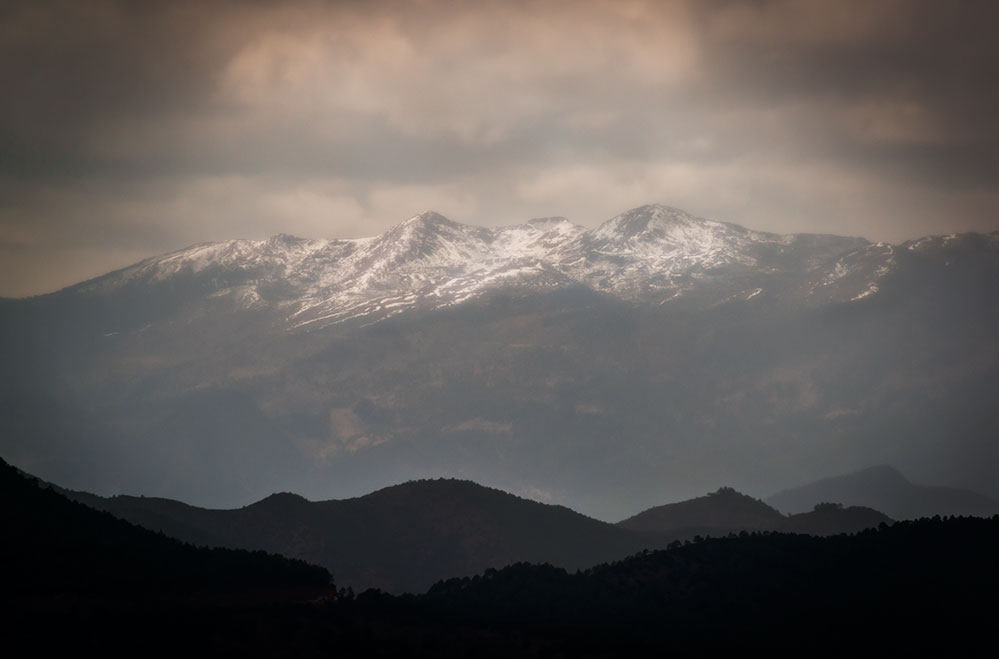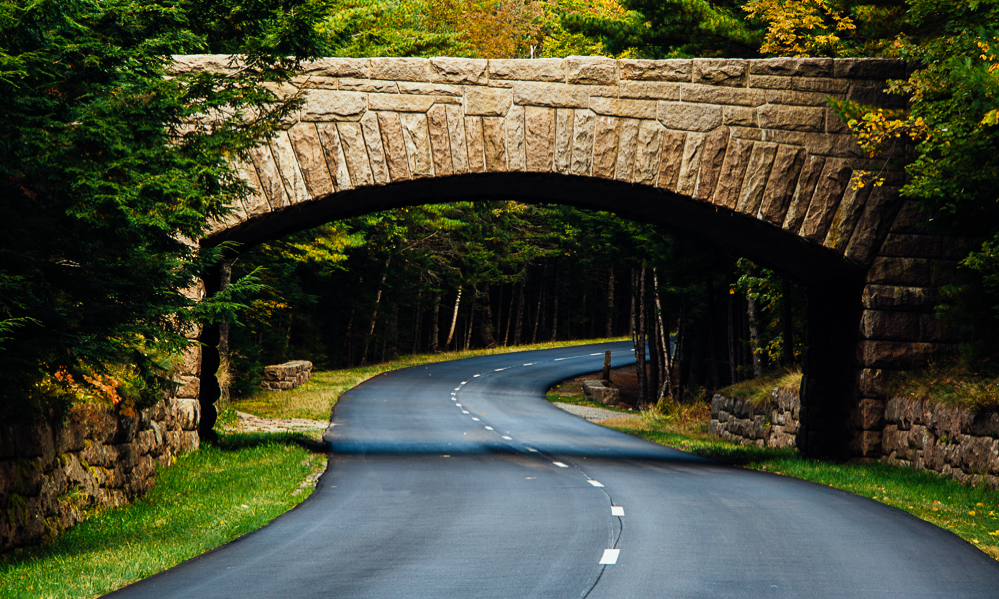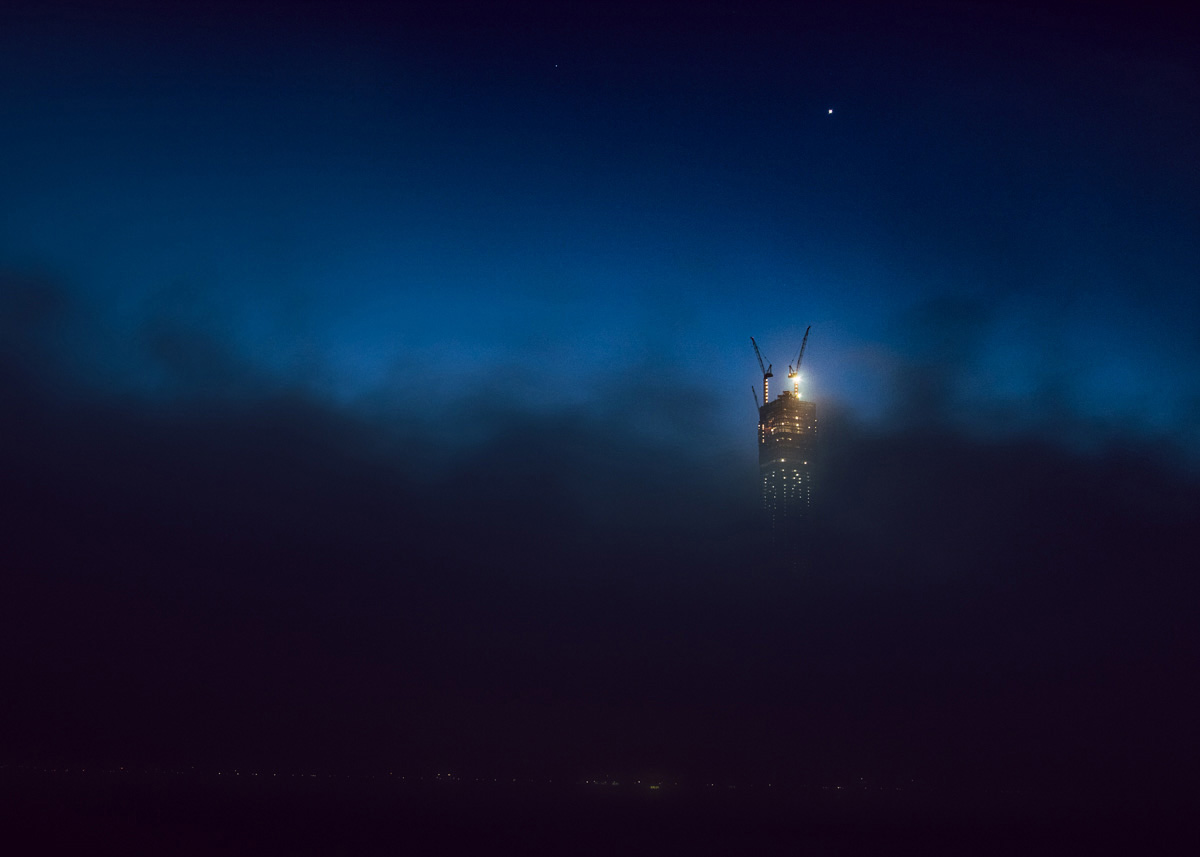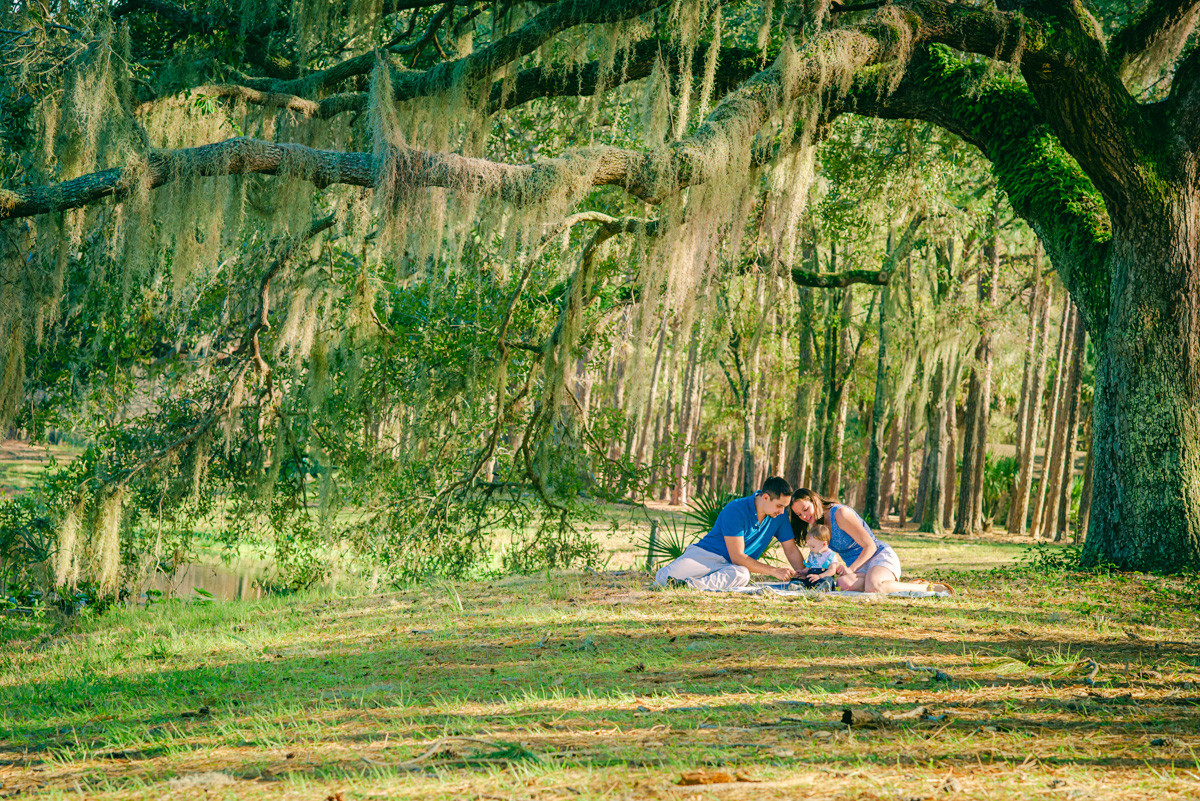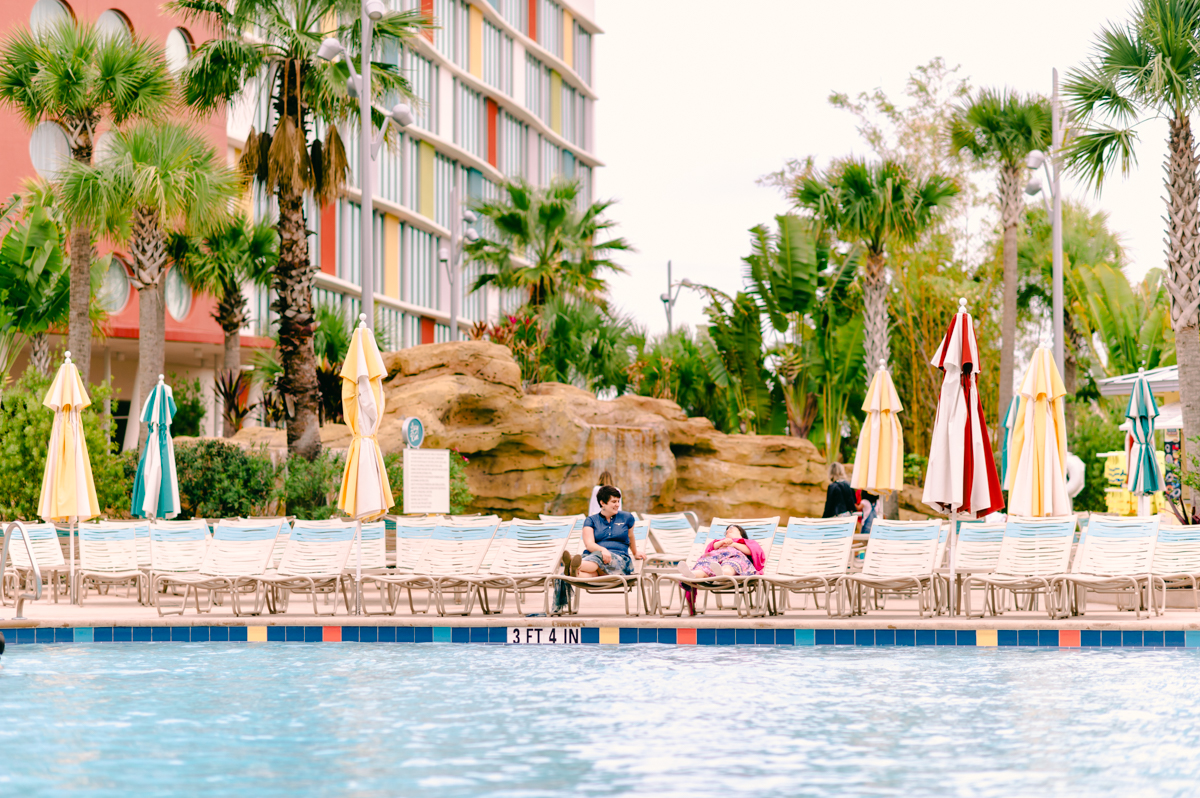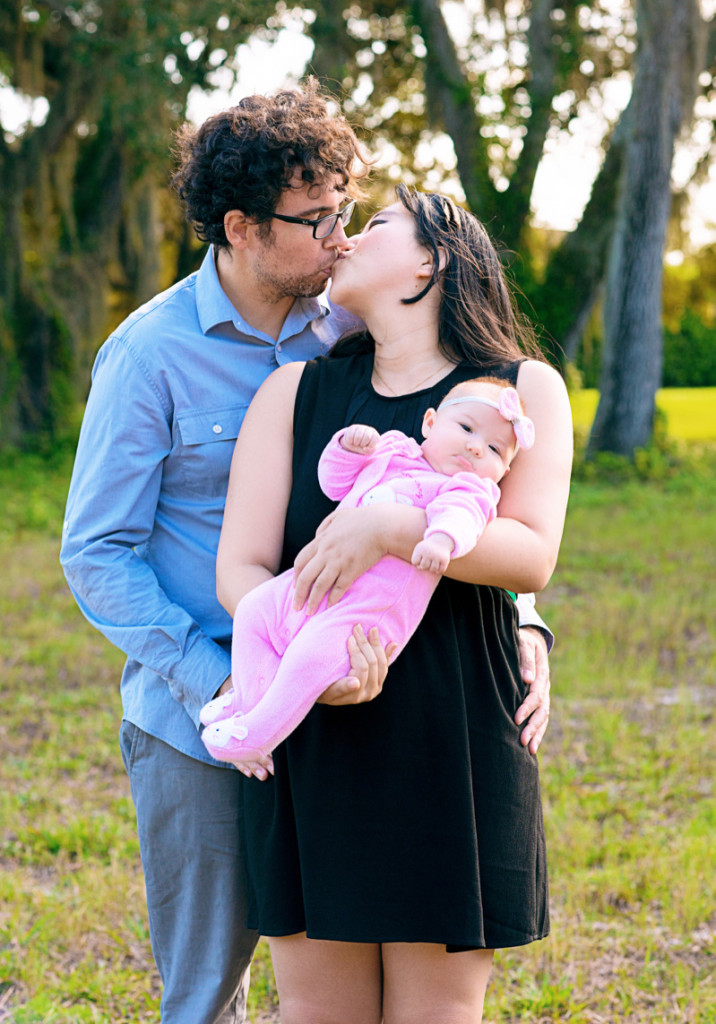The Grand Buddha of Leshan towered over us, hundreds of feet tall, his giant head haloed by the afternoon sun. We were surrounded by people, hundreds of them, maybe thousands in the Leshan Buddha Park, and more in the tour boats in the river behind us. At an alter in front of the statue, Chinese tourists waited with uncharacteristic patience to kneel and offer a prayer before moving on.
Dannie read from our entrance packet that ancient Chinese rulers had built the Grand Buddha statue, along with the thousands of others in the park, in order to spread Buddhism and to earn good Karma for themselves, presumably moving one step closer to enlightenment. Contemplating the years of labor this must have required caused me to reflect on our own ambitions.
As we traveled through China, among family and among strangers, in enormous cities and in rural villages, the scenery changed and our minds expanded, but one pressure remained constant. We had decided to change our careers and earn a living through photography and travel. We still had our jobs and our incomes, but the need to shift away from them, to move in the right direction was a weight on our shoulders, bearable, but a burden nonetheless.
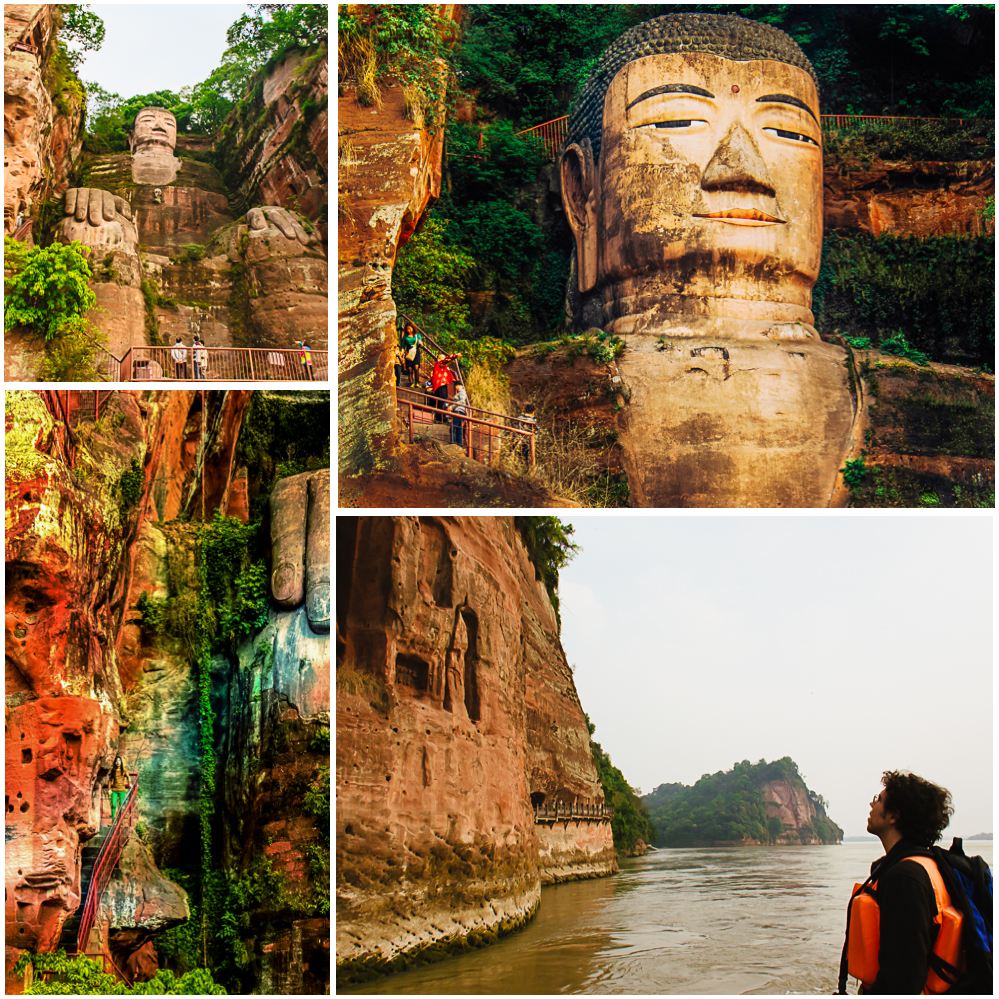
The Buddha park was the largest and most historic site we had visited on our trip, and Dannie was determined to get some usable photographs. To that end, we each carried different lenses to make sure we didn’t miss a shot. I had the wide angle and she had the zoom, and we moved from statue to statue looking for the best angle and trying to find a gap in the throngs of tourists through which we could shoot.
Dannie was having more luck with the zoom lens, but she was experiencing a different kind of frustration. She was cropping out the tourists and the trashcans, and getting the compositions she wanted, but she wasn’t enjoying herself. She liked the adventure, and she liked the time we were spending together, but the photography was stressing her out.
As I was composing a shot of the grand Buddha’s toe using the wide angle lens (it’s a very big toe), Dannie flipped through her shots from the day, sometimes smiling and sometimes frowning. Occasionally she would tap me on the shoulder and hold the LCD screen in front of my face.
“Would you buy this?” she asked.

On the screen was a statue of a beautiful naked woman, a demon that had tried to tempt Buddha. The demon’s arms were raised as though in dance, and sunlight illuminated her face in front of a leafy background punctuated by white branches. It was a lovely photograph.
“That’s a lovely photograph,” I said.
“But do you think it’s good enough to make money? Even if I shot it right, is anyone going to want this? Who wants a picture of a statue?”
It was a good question. I liked the image a lot, but I don’t buy much photography. A magazine might buy it as stock for an article about the Buddha Park, but they would be more likely to want the giant statue we were standing in front of, the famous Grand Buddha of Leshan. I liked it too much to let her delete it though.
“Keep it anyway,” I said, “We’ll find a use for it.”

I held her camera for her while she approached the alter and prayed to Buddha of Compassion for wisdom.  She returned to me and we made our way through up some winding stairs, along a cliffside, and then up some more stairs and down a cobblestone path to the exit.
We were nowhere near the bus station so we hired a rickshaw to take us closer to town. We rode in relative silence, watching the scenery pass us by. I was thinking about dinner when Dannie grabbed my arm, smiling.
“I’ve realized something,” she said. “All this time I’ve been worrying about how to make money from my photographs. Every time I point my camera at something I wonder ‘who will buy this’ and it’s making me miserable. But that’s so pointless.”
A pothole shook the rickshaw and we clutched the seat with our hands to steady ourselves. Dannie went on.
“The whole reason we want to make a career out of photography is so that we can do something we love. If we don’t love the photography we’re taking, if we just shoot what we think other people want to see, we might as well just give up and keep working our day jobs. We should live the life we want to live, take the photographs we want to take, and when we find a way to make money from that we’ll know it, and if we never do then we haven’t lost anything.”
I wanted to kiss Dannie passionately on the mouth, but another pothole jostled us so badly that I was afraid of chipping a tooth, so I clasped her hand instead. “It sounds like you were enlightened a little bit in the Buddha Park today,” I told her.
“Uh huh,” she said, nodding. “When I think greedy thoughts, like ‘how can I make money from this,’ it keeps me from being happy no matter what I’m doing. If I just focus on being content and compassionate, then I’ll always be happy, even if we aren’t rich.”
Suddenly Dannie looked ashamed, and for a moment she turned her eyes away from me. I wondered what could have changed her mood so abruptly during her moment of victory. She looked back at me with tears in her eyes. “Have I been ruining the trip?” she asked, “has my selfish attitude been making us both unhappy?”

“Dannie,” I said, “you are the reason for the trip. We wouldn’t be here if it weren’t for you, and I wouldn’t even be pursuing a new life without you. Even if we break our cameras and don’t get any photographs and we waste thousands of dollars on this trip, it will all be worth it, just for this moment when you get one step closer to learning how to be happy.”
Dannie hugged me. “I guess my thoughts about money were like that demon that tried to tempt Buddha; it can’t effect me now because I know it can’t ever make me happy.”
She smiled at me and I smiled back at her. “We are going to be rich though,” I said as we arrived at the bus station.
“I know,” she said, and she climbed down from the rickshaw and started looking over her map.

